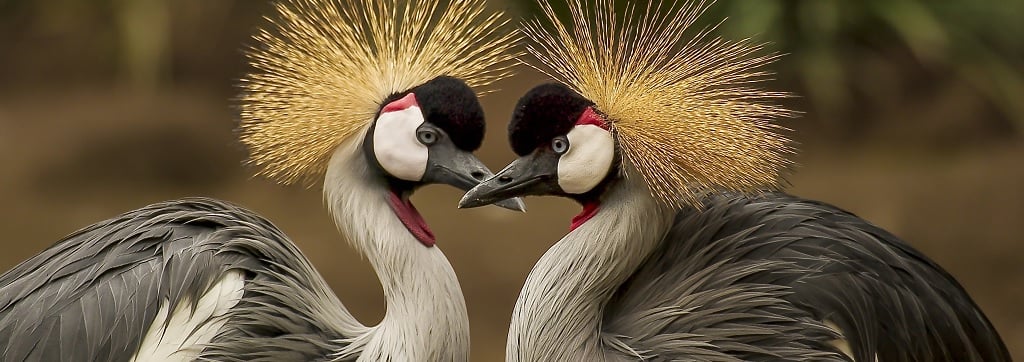A new study examines the available literature on the moral consideration of animals in China

China has a huge land mass and the largest human population. It’s home to a vast wild animal population and is among the largest users of animals globally. For these reasons, Chinese attitudes and policies towards nonhuman animals have a large and growing impact both domestically and internationally. There is little animal advocacy in China and it’s essential to research ways to incorporate concern for wild animal suffering as the movement develops.
The objectives, methods, and limitations of this study
A recent literature review examined the current attitudes and legal protection of nonhuman animals in China. Its purpose is to help animal advocates understand how to effectively expand animal advocacy in the country, with a particular focus on wild animals. The study, “A literature review of the current consideration of animals in China,” was conducted by Courtney Henry, Vincent Chow, and Nadine Grinberg, in partnership with Animal Ethics.
There is useful work about animal protection in China and about China’s legal, social, and cultural perspectives on animals but to our knowledge there has not been a systematic review of the literature related to animal advocacy in China, particularly literature relevant to wild animals. One limitation of this study is that there is little literature relating to how organizations can effectively advocate for wild animals in China.
Results
The literature discusses both the plight of animals and perspectives on how it might be improved. It covers animals in general, animals used for food, animals as companions, and animals living in the wild. The study did not find any literature that directly addresses wild animal suffering, though the authors did find discussion of some related issues. The literature reflects an increasing interest in the moral consideration of animals. Among academics, there is a growing debate about speciesist ideas. The literature suggests that arguments taken from Chinese philosophical traditions, such as Confucianism, Taoism, and Buddhism can have more impact in this debate than the appeal to ideas used in Western philosophical schools.
Although there is little literature on animal advocacy in China, there have been some positive shifts in attitudes among the Chinese public towards animals in general, animals used for food, and animals kept as companions. Young people, educated people, and those who live with companion animals seem to be increasingly open to animal advocacy.
However, the literature shows little awareness of wild animal suffering as a cause. Species conservation is commonly confused with the protection of wild animals as individuals. There is not much interest in the wellbeing of individuals except for some charismatic animals such as pandas.
A discussion of the main results
The literature reflects growing concern about the moral consideration of animals in China, and this concern may grow more rapidly in the future due to more favorable attitudes among younger and more educated people. Connecting this growing concern with Chinese philosophical tradition could help to increase interest in this issue.
A major impediment is the conflation of the idea of protecting animals as individuals with conservation of species. This problem is found around the world, and it is present in China because there is so little discussion there of wild animal suffering. However, among the general public and policymakers, there is a great interest in charismatic animals such as pandas, and this may provide an opportunity to introduce the concept of wild animal suffering and the need for research in this area.
Another important confusion is between the wellbeing of animals and their survival. This confusion could be reduced by interventions to reduce the suffering of charismatic animals such as pandas, which may be well received by the public because of favorable attitudes towards these animals. Such interventions would require research focused on the wellbeing of animals as individuals, and would stimulate further research on the topic. Both favorable attitudes and research are critical to the success of efforts to help wild animals.
Using dogs for food is a controversial issue in China. Although there is no logical reason to view dogs differently from other animals used for the same purpose, there has been international pressure to reduce dog consumption specifically, and this has succeeded to some degree. However, Chinese authors point out that it is unfair to make a distinction between dogs and other animals used for food.
Conclusions
The main findings of this study can be summarized as follows:
· While concern for nonhuman animals in Chinese society has grown (especially among those living with animals as companions), many practices harmful towards animals remain unchallenged.
· Building a social basis for the defense of animals seems to be imperative for this cause to be successful. This seems feasible if we consider the evolution of the consideration for animals in China, as well as the possibility of education making a difference in that respect.
· China’s own philosophical traditions could provide the grounding for arguments in support of the moral consideration of animals.
· The concept of improving the welfare of wild animals as individuals is confused with the conservation of their species, as in other countries.
· Interventions to reduce wild animal suffering among charismatic animals in China may be a promising way to grow concern about wild animals as individuals.
This research was possible thanks to the support of Animal Charity Evaluators, which funded this work through its Animal Advocacy Research Fund.